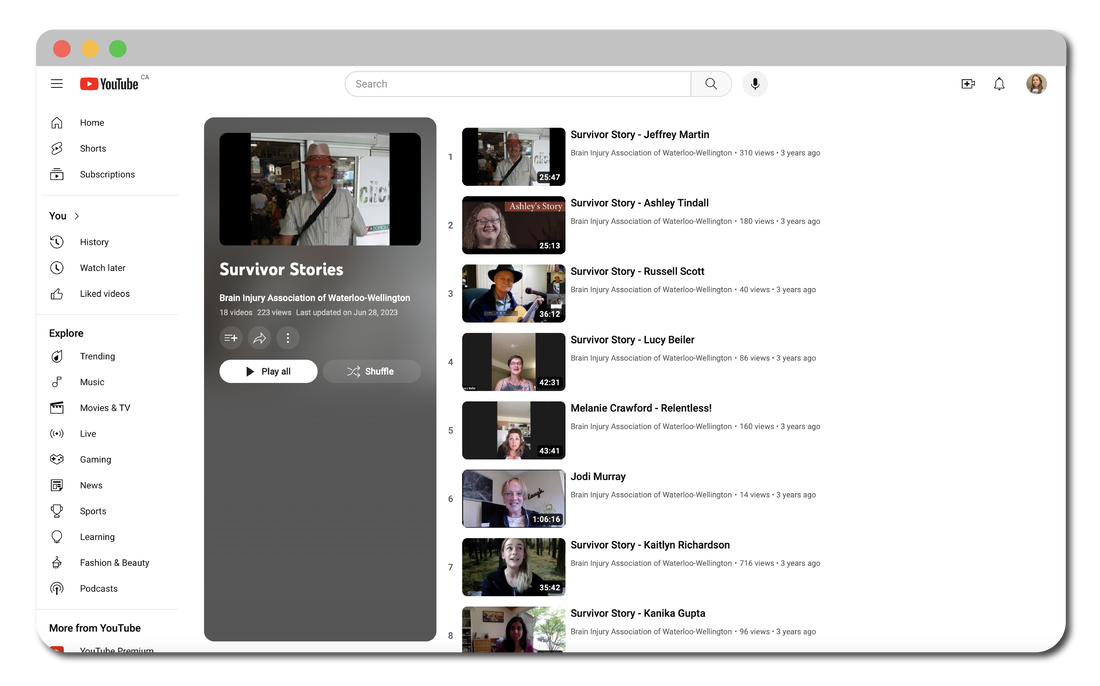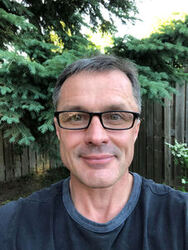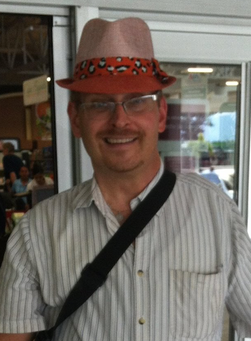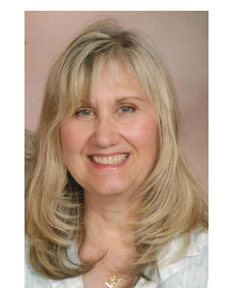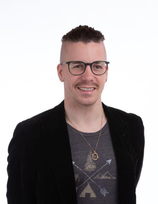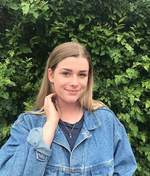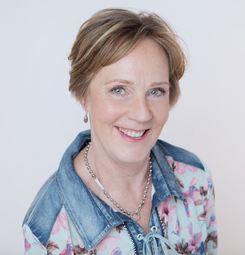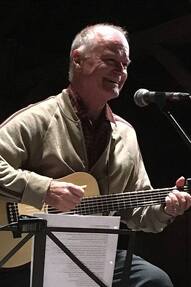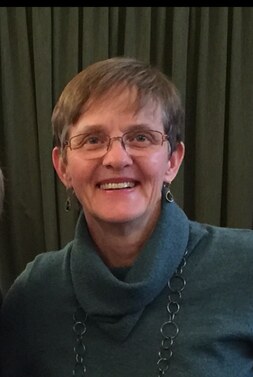The following stories are the stories of acquired brain injury survivors. They do not reflect the views or opinions of the Brain Injury Association of Waterloo-Wellington. This page is for them to tell their story as they experienced. We recommend that all seek both medical and legal advice. If you need resources along your journey please see our Professional Directory.
|
Watch Survivor Stories on Our
Youtube Channel! |
Paul Cleve
|
Paul was a Firefighter for 23 years when on November 11, 2012, he fell off the top of the firefighter truck and landed on his head, cracking his head open, severing an artery, and fracturing his left clavicle into four pieces. He was immediately brought over to Grand River Hospital and eventually transferred to Hamilton, where he went on life support and was in a coma for a week. The doctors explained to Paul’s family that when he came out of the coma, he’d likely be in a vegetative state and unable to talk or walk, with an 80% chance that he wouldn’t survive. It was a heartbreaking process as his family and kids came to say goodbye to him in the hospital. Luckily, things turned around for Paul and against all odds, he woke up from the coma and began to recover. Though, the process was very slow as they had to take the left half of Paul’s skull off for 3 months, his left arm became paralyzed for a year, and his left clavicle was broken for 5 weeks before they could put it back together. He eventually went through 7 surgeries; 5 on his head and 2 on his shoulder.
|
Before Paul’s brain injury, he struggled with Bipolar disorder and PTSD from being a Firefighter for 23 years. He also struggled with addiction before the injury, and eventually decided to attend rehab. After the injury, he often struggled with sleeping at night, eating enough, and experiencing dark thoughts. He eventually reached out for professional help and started medication which helped turn his life around. Paul can now say that his brain injury has changed his life in a positive way and made his life better, as it has given him the opportunity and time to work on himself and deal with a lot of things he should have dealt with prior to the injury, some including mental health and addiction.
Paul believes that he is about 95% recovered from his injury. Though he is not physically perfectly healed as he still experiences pain and numbness in his left arm and seizures, Paul is now in a much better emotional spot than ever before through practicing yoga and meditation to control his mind and heal his subconsciousness. Paul is constantly learning and practicing healthier habits and believes that if people can get control of the mind, then we can get control of the feelings that the mind gives in the body. We can hold unhealthy energy in our body if we don’t breathe and release this energy, and the more awareness we get of unhealthy energy the more we can move it. Now that Paul has learned to remove these energies from his body when he feels triggered, he has a much easier time dealing with physical and emotional challenges from his injury.
Paul wants to tell survivors one main thing; just because you are where you are right now doesn’t mean you will stay there. You have the power to go wherever you want to take yourself in life; manifest healthy thoughts and do your best to head in the direction you want to go, and you will get the places you want to be. Don’t attach yourself to someone else’s thoughts or focus too much on what other people say about you. Paul was given an 80% chance of death from his accident, imagine if he had just given up there and had not pushed forward to recover. Learn to understand and appreciate the slowness of time, it’s not about reaching your final direction but more about the direction you take. Look at the challenges that life throws at you in a positive light; it’s okay and normal to sometimes feel defeated and need to take a break, but don’t make it a practice. Learn and practice the importance of loving yourself and others; this all goes not only just for people with brain injuries, but for everyone.
If you want to view Paul's full story, please click here.
Paul believes that he is about 95% recovered from his injury. Though he is not physically perfectly healed as he still experiences pain and numbness in his left arm and seizures, Paul is now in a much better emotional spot than ever before through practicing yoga and meditation to control his mind and heal his subconsciousness. Paul is constantly learning and practicing healthier habits and believes that if people can get control of the mind, then we can get control of the feelings that the mind gives in the body. We can hold unhealthy energy in our body if we don’t breathe and release this energy, and the more awareness we get of unhealthy energy the more we can move it. Now that Paul has learned to remove these energies from his body when he feels triggered, he has a much easier time dealing with physical and emotional challenges from his injury.
Paul wants to tell survivors one main thing; just because you are where you are right now doesn’t mean you will stay there. You have the power to go wherever you want to take yourself in life; manifest healthy thoughts and do your best to head in the direction you want to go, and you will get the places you want to be. Don’t attach yourself to someone else’s thoughts or focus too much on what other people say about you. Paul was given an 80% chance of death from his accident, imagine if he had just given up there and had not pushed forward to recover. Learn to understand and appreciate the slowness of time, it’s not about reaching your final direction but more about the direction you take. Look at the challenges that life throws at you in a positive light; it’s okay and normal to sometimes feel defeated and need to take a break, but don’t make it a practice. Learn and practice the importance of loving yourself and others; this all goes not only just for people with brain injuries, but for everyone.
If you want to view Paul's full story, please click here.
Jeffery Martin
|
In 1994 Jeffery was an honours kinesiology student at McMaster University. He was a competitive runner, and an athletic person, until one day while riding a motorcycle; he collided with a tree going 100 kilometres an hour. Jeffery was in a coma for 6 weeks, and after he woke up, he knew he had a long and difficult journey to recovery ahead of him. The injury left Jeffery with his left arm paralyzed, which would eventually have to be amputated. As a kinesiology student he knew he was going to need a lot of effort and a lot of persistence in order to get healthy once again.
After the injury, Jeffery suffered from lethargy and exhaustion. He was not able to stay awake for more than five minutes at a time, and as a result, his memory would also only last for five minute at a time. The injury also severely weakened Jeffery’s lungs, to the point where he could barely speak. All the pain and injuries left him wondering, “What is ahead of me now?” He began to feel extremely overwhelmed, nothing in his life felt familiar anymore. As soon as Jeffery built up the strength to speak again, he knew he couldn’t do this on his own, and he asked to go to church. |
In his process of recovery, Jeffery began meditation in order to recreate and change his patterns of thoughts and refocus. He learned how meditation could help build new neural pathways and therefore, build a new you. Over the years Jeffery has gone to physiotherapy, massage therapy, occupational and recreational therapy, alternative medicines, and neurological therapy, which he found the most helpful. Jeffery realized that he had an opportunity to create a new version of himself and move the focus from the past in order to create a new future. He realized his calling, to be an inspiration and empower others in the community. He rediscovered things he could do to be active, and that gave him a sense of freedom – he found it in skiing.
Jeffery decided to create, design, and run a 5-kilometer ski race in Victoria Park in Kitchener. He raised 10 thousand dollars in donations from the community and had hundreds of supporters come to the race. Now, Jeffery also does speeches at colleges, universities, and high schools, as well as for the BIAWW. Jeffery has said that keeping active in the community has been integral in his recovery.
‘”Live and lead by example.”
Jeffery urges everyone to be a person who is joyful, dedicated, and a hard worker - to become a person of integrity and to be an example for others. He believes that reaching out, getting involved, and giving back to the community and to yourself can help you focus on the positivity in life.
“The brain injury defines an event in the past. I define my future.”
To listen to Jeff's full story, please click right here.
Jeffery decided to create, design, and run a 5-kilometer ski race in Victoria Park in Kitchener. He raised 10 thousand dollars in donations from the community and had hundreds of supporters come to the race. Now, Jeffery also does speeches at colleges, universities, and high schools, as well as for the BIAWW. Jeffery has said that keeping active in the community has been integral in his recovery.
‘”Live and lead by example.”
Jeffery urges everyone to be a person who is joyful, dedicated, and a hard worker - to become a person of integrity and to be an example for others. He believes that reaching out, getting involved, and giving back to the community and to yourself can help you focus on the positivity in life.
“The brain injury defines an event in the past. I define my future.”
To listen to Jeff's full story, please click right here.
Ashley Tindall
|
Ashley was 17 years old when she was involved in a motor vehicle accident on August 14, 2000. She was the backseat passenger in a vehicle where the distracted driver swerved onto the other side of the road on a bridge, colliding into a loaded dump truck. The passenger side (Ashley’s side) of the car took most of the impact, and Ashley was immediately air lifted to Sick Kids hospital in Toronto. She was in a coma for 12 days and remained in the hospital for 80 days. Ashley sustained several injuries from the accident, including brain injury, low vision, no sense of smell, shattered right elbow, an injured pituitary, and diabetes insipidus. One of the main concerns of Ashley’s injuries was a chronic CSF leak as a result of multiple broken bones in her head. This puts Ashley at risk for bacteria entering her system, which puts her at a higher risk of developing meningitis (which she has had twice since).
|
The entire process has been difficult and life changing for Ashley, but thankfully, she has her family as a strong support system who have stood by her side through all of the challenges she has faced.
Before the accident soccer and sports were Ashley’s life. Though she can no longer play at the same level due to her ABI and low vision, she still does her best to participate in leisure activities for exercise. She had to completely find a new identity after the accident as she could no longer dedicate her life to sports. She often experiences high levels of fatigue and has to be patient and take her time in life; for example, taking 10 years to complete her university degree. Though it was tough at first, Ashley now realizes that the accident put things in perspective for her, as she learned to be thankful for things in life that she once took for granted; including sports, driving and being able to work full time. Because of her injury to her right elbow simple tasks like brushing her teeth and hair became a challenge. She also had the time and motivation to strengthen her relationship with God, with a stronger faith now than ever before.
Ashley is now 20 years post injury, and she can finally say that she has accepted her new identity and is no longer focused on comparing her old self to her new self. She has now been the “new” her longer than she has been the “old” her, and she is happy with the person that she has become. Her health is fairly stable, though she still does have to take precautions and attend appointments. Ashley has learned something very important from her injury; just because you have to do something differently, does not mean you can’t do it at all. Though Ashley often does need extra support through transitions, such as completing her University degree or starting a new job, she always tries her hardest and is prepared to do her very best. Currently, Ashley and her mom have been writing a book called “The Way I See Things.” The novel will highlight Ashley’s perspective as a survivor and her mother’s perspective as a caregiver, hoping to provide insight to individuals and show that you can get through trauma and become a stronger person because of it.
Ashley has four points of inspiration she tries to follow each day and would like to share with other survivors:
1. Count all of your successes no matter how small
2. Surround yourself with positive people
3. Don’t be afraid to ask for help
4. Try to greet each day with a smile
If you want to view Ashley's full story, please click here.
Before the accident soccer and sports were Ashley’s life. Though she can no longer play at the same level due to her ABI and low vision, she still does her best to participate in leisure activities for exercise. She had to completely find a new identity after the accident as she could no longer dedicate her life to sports. She often experiences high levels of fatigue and has to be patient and take her time in life; for example, taking 10 years to complete her university degree. Though it was tough at first, Ashley now realizes that the accident put things in perspective for her, as she learned to be thankful for things in life that she once took for granted; including sports, driving and being able to work full time. Because of her injury to her right elbow simple tasks like brushing her teeth and hair became a challenge. She also had the time and motivation to strengthen her relationship with God, with a stronger faith now than ever before.
Ashley is now 20 years post injury, and she can finally say that she has accepted her new identity and is no longer focused on comparing her old self to her new self. She has now been the “new” her longer than she has been the “old” her, and she is happy with the person that she has become. Her health is fairly stable, though she still does have to take precautions and attend appointments. Ashley has learned something very important from her injury; just because you have to do something differently, does not mean you can’t do it at all. Though Ashley often does need extra support through transitions, such as completing her University degree or starting a new job, she always tries her hardest and is prepared to do her very best. Currently, Ashley and her mom have been writing a book called “The Way I See Things.” The novel will highlight Ashley’s perspective as a survivor and her mother’s perspective as a caregiver, hoping to provide insight to individuals and show that you can get through trauma and become a stronger person because of it.
Ashley has four points of inspiration she tries to follow each day and would like to share with other survivors:
1. Count all of your successes no matter how small
2. Surround yourself with positive people
3. Don’t be afraid to ask for help
4. Try to greet each day with a smile
If you want to view Ashley's full story, please click here.
Ellen Ibele
|
Ellen is a wife, mother, and part-time teacher who loved reading, walking, doing family activities, bowling and socializing. She enjoyed her career as a teacher and found a wonderful part-time teaching position in a private school while she upgraded her skills in ESL and Special Education. She was poised to enter the local public-school board when a car accident changed the trajectory of her future. Ellen was involved in a motor vehicle accident where the driver of a truck-mounted construction crane failed to properly secure his crane, and as he travelled towards Ellen, the top arm swung across to her lane and over the SUV ahead of her, dropping the arm in front of her little car. She tried to avoid hitting the crane arm sliding towards her, but did not have enough lane room to miss it and; thus drove over the crane, smashing her head into the roof interior in the accompanying large jolt. Thankfully, her car did not roll over, but was completely totalled due to the extensive damage to the car’s undercarriage. She sustained head and back injuries, and the driver was charged and convicted of failing to secure his load.
|
It took Ellen some time to begin to realize the extent of her brain injury. She quickly went into denial, all the while, doing all kinds of crazy things like putting her purse away in the microwave or on the stove burner and turning the burner on to heat up “the pot of water.” Having lived in KW almost all of her life, she suddenly couldn’t remember how to get somewhere and became disoriented walking her own neighbourhood, where she’d lived in for almost 10 years. She also struggled to remember kids’ names at her school (though she’d taught them for 3 years). She experienced short term memory loss, concentration/cognitive problems, light and sound sensitivities, dizziness, fatigue, and lacked a sense of time, spatial awareness, etc…
Eleven years later, Ellen would like to think that she is “more aware cognitively” (though her husband may object); and some, though not all, of the symptoms have decreased in some form or other. Though Ellen did fall and hit her head on her cement porch about 2 years ago that made some things worse, other issues don’t seem to have changed at all. She experiences less head pain, less frequent dizzy spells and is better able to concentrate for longer periods of time (she thanks the card making program for this!). Ellen thinks that maybe “some improvements” might only be due to living a much slower, simpler life than before, because if she speeds up, she tends to generally run into problems.
Ellen’s Christian faith is her life’s overarching inspiration and underpinning. Though her injuries have led her to feel disappointment and frustrated at times and even grief over some of the losses (not able to travel, not yet able to pursue further education), she spends more time “embracing” her new life and thinking in terms of “challenges to overcome” rather than “wallowing in insurmountable problems.” Soon after her accident, Ellen learned to knit preemie hats to donate to the local hospital. She continues to supply teach to the best of her ability (though kids are generally now called “buddies and sweeties” since she often can’t recall names) and she is able to participate in the Brain Waves program and make cards.....so life is different, but still good. She had co-founded a support group for people with an auto-immune disease many years before her own injuries and understands that with a traumatic impact on life, people go through the stages of grief and loss and they repeat this process over and over again when they live in a state of chronic illness; and it’s true for Ellen, too, but she tries to choose to spend more time moving forward in this “new normal” of life....BIAWW has been great for Ellen to find new friends and do new things that she wouldn’t otherwise have had the privilege or thought to meet or to do.
Eleven years later, Ellen would like to think that she is “more aware cognitively” (though her husband may object); and some, though not all, of the symptoms have decreased in some form or other. Though Ellen did fall and hit her head on her cement porch about 2 years ago that made some things worse, other issues don’t seem to have changed at all. She experiences less head pain, less frequent dizzy spells and is better able to concentrate for longer periods of time (she thanks the card making program for this!). Ellen thinks that maybe “some improvements” might only be due to living a much slower, simpler life than before, because if she speeds up, she tends to generally run into problems.
Ellen’s Christian faith is her life’s overarching inspiration and underpinning. Though her injuries have led her to feel disappointment and frustrated at times and even grief over some of the losses (not able to travel, not yet able to pursue further education), she spends more time “embracing” her new life and thinking in terms of “challenges to overcome” rather than “wallowing in insurmountable problems.” Soon after her accident, Ellen learned to knit preemie hats to donate to the local hospital. She continues to supply teach to the best of her ability (though kids are generally now called “buddies and sweeties” since she often can’t recall names) and she is able to participate in the Brain Waves program and make cards.....so life is different, but still good. She had co-founded a support group for people with an auto-immune disease many years before her own injuries and understands that with a traumatic impact on life, people go through the stages of grief and loss and they repeat this process over and over again when they live in a state of chronic illness; and it’s true for Ellen, too, but she tries to choose to spend more time moving forward in this “new normal” of life....BIAWW has been great for Ellen to find new friends and do new things that she wouldn’t otherwise have had the privilege or thought to meet or to do.
Stephen Clark
|
On a beautiful August day, Stephen was driving down the highway when he suddenly lost control of his vehicle. The vehicle collided into a rock cut on the side of the highway and flipped onto the driver’s side, with the door frame pinning his head against the asphalt. A 911 call came in at 5:33 pm and EMS and the fire department were dispatched and rushed to the scene. Stephen had to be cut out from the car wreck, and his family members were immediately notified to meet police at the hospital. They described the experience as “surreal and endless,” as they painfully waited not knowing what would happen to their loved one. The doctors explained that Stephen obtained such severe injuries they did not know if he would survive the night, or ever recover, with only a 15% chance of survival.
|
When Stephen woke up from his coma and began his recovery process approximately 15 days after the accident, life was very different for him. He had to relearn many things in life he once did effortlessly, including talking, writing, thinking, walking, exercising, eating, remembering and more. He persevered and continued to work hard to see himself to get better, determined to resume life as normally as possible. Still to this day, if Stephen wants to do something correctly, he has to relearn the skill that assists to accommodate him in his relearning process. With his mom as his teacher, coach, and cheerleader, Stephen is still determined to do the impossible and make himself and his loved ones proud.
Stephen has taken up several different activities for his enjoyment and to help with his rehabilitation. Some of these activities included dancing with his sister, swimming (which he can swim over half a dozen laps!), paddle boarding, snowboarding, skating, biking, rock climbing, and more. He is currently in vision therapy, light therapy and PoNS (Portable Neuromodulation Stimulator) therapy, which helps to stimulate and create new neuropathways in the areas of the brain that are responsible for vision, balance and walking. He has also become comfortable driving again, completing several stages of driver rehabilitation programs at the hospital and in the community. Stephen has driven in several cities, on highways and even in rush hour traffic. However, since his last two prescription glasses, which were designed for Stephen’s brain to use both eyes at the same time and integrate sensory, visual and auditory systems, he has decided to take a break from driving until his eyes are better able to adjust to the new prescription glasses and heal his double vision. Stephen finds healing in being able to share his story with others through his presentations and books; Stephen has published two books called “That Book of Mind” and “Eternity Inside the Mind,” where he discusses his philosophy of truth, insights on how he gripped his reality, and how he understands the changes inside his mind. Stephen has obtained his master life coach and Reiki master certifications, where he can share his wisdom with others. Before the accident, Stephen wanted to be author, presenter, and business owner. Consequently, he has had the strength and opportunity to make his dream come true, even if life might not have gone the way he had planned before the accident.
Stephen wants to remind survivors not to give up hope in the face of adversity. Anything is possible with a positive mindset - being positive and grateful is the first step in healing. There must always be time for you to work on getting better, you just have to believe it and remember that you control the choices you make to achieve your goals. Stephen believes that the key to a strong recovery is believing in yourself, maintaining a healthy lifestyle and positive mindset, attending and believing in your therapy, not being afraid to try new things, and making the impossible possible.
If you want to view Stephen's full story, please click here.
Stephen has taken up several different activities for his enjoyment and to help with his rehabilitation. Some of these activities included dancing with his sister, swimming (which he can swim over half a dozen laps!), paddle boarding, snowboarding, skating, biking, rock climbing, and more. He is currently in vision therapy, light therapy and PoNS (Portable Neuromodulation Stimulator) therapy, which helps to stimulate and create new neuropathways in the areas of the brain that are responsible for vision, balance and walking. He has also become comfortable driving again, completing several stages of driver rehabilitation programs at the hospital and in the community. Stephen has driven in several cities, on highways and even in rush hour traffic. However, since his last two prescription glasses, which were designed for Stephen’s brain to use both eyes at the same time and integrate sensory, visual and auditory systems, he has decided to take a break from driving until his eyes are better able to adjust to the new prescription glasses and heal his double vision. Stephen finds healing in being able to share his story with others through his presentations and books; Stephen has published two books called “That Book of Mind” and “Eternity Inside the Mind,” where he discusses his philosophy of truth, insights on how he gripped his reality, and how he understands the changes inside his mind. Stephen has obtained his master life coach and Reiki master certifications, where he can share his wisdom with others. Before the accident, Stephen wanted to be author, presenter, and business owner. Consequently, he has had the strength and opportunity to make his dream come true, even if life might not have gone the way he had planned before the accident.
Stephen wants to remind survivors not to give up hope in the face of adversity. Anything is possible with a positive mindset - being positive and grateful is the first step in healing. There must always be time for you to work on getting better, you just have to believe it and remember that you control the choices you make to achieve your goals. Stephen believes that the key to a strong recovery is believing in yourself, maintaining a healthy lifestyle and positive mindset, attending and believing in your therapy, not being afraid to try new things, and making the impossible possible.
If you want to view Stephen's full story, please click here.
Kaitlyn Richardson
|
Kaitlyn experienced a traumatic brain injury when she was 12 years old in a severe skiing accident in Vermont. It was her first-time skiing and she lost control, crashing into a tree without a proper fitting helmet. She was rushed to the hospital and put into a medically induced coma for a week, where she was in and out of consciousness and doctors questioned whether or not she would wake up in a vegetative state. When Kaitlyn awoke, she had completely lost her memory and sustained several injuries including a damaged eye nerve, fractured tailbone and pelvis, and broken leg which escalated into a severe case compartment syndrome, requiring two accounts of surgery.
|
Kaitlyn started to experience many challenges as a result of her brain injury. Because she was at a prepubescent age at the time of the accident, she hadn’t fully developed her personality yet, and she struggled to know if a lot of who she was was truly herself or just a result of her brain injury. She started to experience a number of changes as she grew older, and having to deal with managing her brain injury only made this more troubling. Kaitlyn also struggled with the fact that brain injuries have unseen symptoms, and often had troubles finding assistance to manage school and work just because she didn’t have a physical injury visible to the eye.
Though Kaitlyn did have a miraculous brain recovery, she still experiences serious symptoms, which have improved over time but are still persistent. She practices mindfulness and meditation to help her calm down, and appreciates the peer mentee program where she is paired up with another survivor to talk about their symptoms, struggles, experiences, coping mechanisms, and more. She has outgrown many of her past symptoms and has gained some new ones, but has opened up and become her fullest self with a strong support group by side that embraces her for who she is. In the future, Kaitlyn hopes to work in the field of brain injuries and mindfulness and help survivors through their rehabilitation process.
Kaitlyn wants to remind survivors how important it is to have a solid support system to lean on. Survivors need to know that there are people who are going to support them through the process, because it is so common to have feelings of loneliness and alienation. Having people who will normalize the experience for you and who will accept the new you, symptoms and all, is so important.
If you want to view Kaitlyn's full story, please click here.
Though Kaitlyn did have a miraculous brain recovery, she still experiences serious symptoms, which have improved over time but are still persistent. She practices mindfulness and meditation to help her calm down, and appreciates the peer mentee program where she is paired up with another survivor to talk about their symptoms, struggles, experiences, coping mechanisms, and more. She has outgrown many of her past symptoms and has gained some new ones, but has opened up and become her fullest self with a strong support group by side that embraces her for who she is. In the future, Kaitlyn hopes to work in the field of brain injuries and mindfulness and help survivors through their rehabilitation process.
Kaitlyn wants to remind survivors how important it is to have a solid support system to lean on. Survivors need to know that there are people who are going to support them through the process, because it is so common to have feelings of loneliness and alienation. Having people who will normalize the experience for you and who will accept the new you, symptoms and all, is so important.
If you want to view Kaitlyn's full story, please click here.
Kanika Gupta
|
Kanika chooses not to answer the question of “what happened” because she believes that this brings you back to a past-moment and negative space, and instead chooses to live in the present moment.
Kanika’s life changed in a fairly drastic way immediately she sustained her injury. She spent countless hours in intense rehabilitation and treatment programs which often led to more pain and symptoms. Kanika had high expectations for her treatment and after not getting better immediately, she struggled with feelings of strong disappointment and devastation. |
She spent a lot of time dreaming and waiting for the day she would get better, and in turn held herself back even more by not embracing her injury and beauty in her life now. She eventually decided she needed to change her life and had a big decision to make; between exploring alternative treatments and an endless cycle of waiting for answers, or putting all of her energy into curing herself and living her life in the present moment. She eventually decided to stop treatment and start to imagine a life post recovery, though it seemed to be a big question mark at the time. Lots began to change in her life, including her interests, social life, work, and more. She eventually discovered her passion for art and used it to express her brain injury journey.
Kanika feels recovered from her injury because she no longer obsesses over how to get better and looks to put the pieces together in her life. She accepts and embraces who she is now; brain injury and all. Even though she wakes up with headaches every day, has ongoing symptoms, and needs to pace herself, she embraces all of this as a part of who she is and has learned to recognize and manage her symptoms in a positive light. She has used her passion for art to create many meaningful and beautiful pieces, and has completed a light-hearted, humourous comic series called BRAVE that shines a light on living with the effects of a concussion.
Kanika wants to tell survivors to not focus on what happened to you, but instead focus on how you’re feeling today and how to make yourself feel better each and every day. She is a firm believer in finding a creative outlet to express yourself, whatever that might be for you. Living with a brain injury is a beautiful thing; it’s not tragic or sad. Others may make you believe there is something wrong with you, but it is truly actually a very beautiful thing to be different. Remember to be brave and move forward even though you might feel you have so many odds against you.
If you want to view Kanika's full story, please click here.
Kanika feels recovered from her injury because she no longer obsesses over how to get better and looks to put the pieces together in her life. She accepts and embraces who she is now; brain injury and all. Even though she wakes up with headaches every day, has ongoing symptoms, and needs to pace herself, she embraces all of this as a part of who she is and has learned to recognize and manage her symptoms in a positive light. She has used her passion for art to create many meaningful and beautiful pieces, and has completed a light-hearted, humourous comic series called BRAVE that shines a light on living with the effects of a concussion.
Kanika wants to tell survivors to not focus on what happened to you, but instead focus on how you’re feeling today and how to make yourself feel better each and every day. She is a firm believer in finding a creative outlet to express yourself, whatever that might be for you. Living with a brain injury is a beautiful thing; it’s not tragic or sad. Others may make you believe there is something wrong with you, but it is truly actually a very beautiful thing to be different. Remember to be brave and move forward even though you might feel you have so many odds against you.
If you want to view Kanika's full story, please click here.
Jodi Murray
|
Jodi was involved in a motor vehicle accident where she was T-boned in January 2013.
After the accident, Jodi began to struggle with loss of her identity and who she was, having to create a new normal for herself. One-minute Jodi was a college professor and in a split second everything changed - she had to begin to reimagine herself and her future living with ongoing symptoms. Though she sometimes struggled with feelings of isolation and loneliness, she kept a strong and positive mindset. She learned how to not be driven by fear and how to manage the grief of not being able to do the things she loved, including being physically active and competing in triathlons. She trained her brain to not think about the things she doesn’t have control over, and instead remember that she is the driver in her life and she decides what she wants to do with it. |
Jodi chose to leave work as a college professor and decided to get her life coach certification at the Center for Applied Neuroscience, eventually starting her own business called JEM Coaching. She now finds healing through her work as a Transition Coach, helping her clients live their best lives through virtual coaching, virtual workshops and presentations, and motivational speaking.
Jodi wants to remind survivors that recovery is an individual process and support needed is very diverse, therefore what works for some else might not work for you. Always remember you are in the driver’s seat in your life - your mind is your vehicle and drives you where you want to go. You can alter your mental and physical health through the choices you make and actions you take. Ensure to have a healthy tribe and strong circle of support, and make time for “play” and whatever makes you happy in your life, for example gardening, exercising, listening to music, and trying new things.
Please click here for a support group presentation from Jodi.
Jodi wants to remind survivors that recovery is an individual process and support needed is very diverse, therefore what works for some else might not work for you. Always remember you are in the driver’s seat in your life - your mind is your vehicle and drives you where you want to go. You can alter your mental and physical health through the choices you make and actions you take. Ensure to have a healthy tribe and strong circle of support, and make time for “play” and whatever makes you happy in your life, for example gardening, exercising, listening to music, and trying new things.
Please click here for a support group presentation from Jodi.
Russell Scott
|
Russell is a talented musician and singer who has suffered multiple traumatic brain injuries throughout his life and has remained resilient and used his music to bring joy to his life and recovery journey.
In 2011 Russell suffered a subarachnoid haemorrhage, which is a life threatening type of stroke that is caused by bleeding between the brain and skull. The survival rate for this uncommon type of stroke is less than 50%, with 30-40% of survivors later suffering from permanent disability and recurrence. Russell was able to recover from the stroke over time after being hospitalized for a week. He describes his survival and recovery as miraculous. Russell was then involved in two car accidents, one in 2014 and the other in 2017. Both these incidents left him experiencing the after effects of a concussion. |
Before his traumatic brain injuries, Russell was a wellness retreat facilitator, helping people find themselves through one on one counselling. Although after his injuries he did find it difficult to continue in his role. After his second injury, Russell suffered through a period of depression, however he did rediscover his music, which had always been an important part of his life and the music was able to bring joy back to his life.
He found that his family physician was not very helpful after his injury; he wasn’t given any referrals for further treatment or recovery options. Russell did a lot of research following his injuries to better understand TBI and while doing so; he recognized that he might have had a history of undiagnosed concussions in his early life due to sports injuries. His research also taught him that music could be a successful tool for people with brain injuries to help their brain recover.
After traumatic brain injuries, the brain can slowly begin to rewire and build new neural pathways and connections during recovery. Russell discovered that singing, writing, and playing music was a great form of therapy and brought him catharsis about his situation.
During his recovery journey, Russell went to a hormone specialist that prescribed supplements that would help his brain regulate hormones at a normal level. He participated in NeurOptimal feedback training, which involves retraining the brain after an injury. Russell did around 20 sessions, and after the 10th session he felt an immediate change in his brain, he felt clearer and lighter. He also visited an osteopath, which after three sessions was able to relive Russell of the pressure and pain he was feeling in his head.
Along with physical therapy, Russell also engaged in trauma therapy and Eye Movement Desensitization and Reprocessing (EMDR), which help to process through his injuries and trauma from the incidents. He stresses the importance of emotional trauma counselling after a major event, and finding a support system in his life.
Russell urges others, who have suffered brain injuries, to reach out, get support, to find resources that work for you and to not give up until you find the resources and help that you need.
If you want to hear Russell's full story (and his music), please click here.
He found that his family physician was not very helpful after his injury; he wasn’t given any referrals for further treatment or recovery options. Russell did a lot of research following his injuries to better understand TBI and while doing so; he recognized that he might have had a history of undiagnosed concussions in his early life due to sports injuries. His research also taught him that music could be a successful tool for people with brain injuries to help their brain recover.
After traumatic brain injuries, the brain can slowly begin to rewire and build new neural pathways and connections during recovery. Russell discovered that singing, writing, and playing music was a great form of therapy and brought him catharsis about his situation.
During his recovery journey, Russell went to a hormone specialist that prescribed supplements that would help his brain regulate hormones at a normal level. He participated in NeurOptimal feedback training, which involves retraining the brain after an injury. Russell did around 20 sessions, and after the 10th session he felt an immediate change in his brain, he felt clearer and lighter. He also visited an osteopath, which after three sessions was able to relive Russell of the pressure and pain he was feeling in his head.
Along with physical therapy, Russell also engaged in trauma therapy and Eye Movement Desensitization and Reprocessing (EMDR), which help to process through his injuries and trauma from the incidents. He stresses the importance of emotional trauma counselling after a major event, and finding a support system in his life.
Russell urges others, who have suffered brain injuries, to reach out, get support, to find resources that work for you and to not give up until you find the resources and help that you need.
If you want to hear Russell's full story (and his music), please click here.
Lucy Beiler
|
31 years ago, Lucy suffered a traumatic brain injury after being rear-ended in a car accident while driving. At 30 years old, Lucy was pregnant with her third child at the time of the accident. Although there was no damage to the car, she experienced an immediate change to her health and life.
Lucy began getting chronic headaches, as well as head, neck, and shoulder pain on the left side of her body. She and her family were then engaged in a four year long battle with the insurance company which only furthered her headaches, pain and difficultly with recovery, all while being pregnant. Being a full time mother and caregiver became difficult with the deep emotional dilemma she faced as a result of the health complications she had from her brain injury. The injury and headaches lead to memory loss, and she struggled with pinpointing and vocalizing certain words, it was as if she knew in her brain what she wanted to say but couldn’t say it. She also had a difficult time reading and retaining what she had just read. |
At the time she had been studying to be a financial planner. Unfortunately with the pain and severity of her symptoms, Lucy would no longer continue to pursue her career and education. She then shifted her focus on to her recovery, becoming mindful of her experiences and living in the moment, and being there for her family as she once was.
Lucy felt that the injury changed every aspect of her life, she used to be high functioning and high energy, but the pain she felt everyday was draining her of that. It’s been 31 years of moving forward.
Lucy has been to chiropractors, physiotherapists, psychotherapists, and nutrition specialists and more in an effort to alleviate the pain she was experiencing. She took part in yoga classes, meditation, body movement, and somatic experiencing. She was able to reach out, find the courage, and ask for help from others in her life when she needed it, and the relief from having that help allowed her to focus a little more on her recovery and making progress every day.
“If you want to make a change, start with simple tasks”
Lucy began to recognize the shift in her outlook when she began seeing a psychotherapist. She realized that trying many different types of therapy and recovery that didn’t work, doesn’t mean that there is something wrong with you, it merely means that you haven’t found the right thing that works for you and that’s going to help you recover. “Success leads to the next success… it also makes the harder steps easier”.
It took 15 years for Lucy’s headache pain to alleviate, and since then over time she’s been reading more, her memory has improved, she even gained back her memories at the age of 61. Recovery comes with persistence, desire, will power, learning, reaching out for help, and being an active voice in your own recovery journey.
To listen to Lucy's full story, please click here.
Lucy felt that the injury changed every aspect of her life, she used to be high functioning and high energy, but the pain she felt everyday was draining her of that. It’s been 31 years of moving forward.
Lucy has been to chiropractors, physiotherapists, psychotherapists, and nutrition specialists and more in an effort to alleviate the pain she was experiencing. She took part in yoga classes, meditation, body movement, and somatic experiencing. She was able to reach out, find the courage, and ask for help from others in her life when she needed it, and the relief from having that help allowed her to focus a little more on her recovery and making progress every day.
“If you want to make a change, start with simple tasks”
Lucy began to recognize the shift in her outlook when she began seeing a psychotherapist. She realized that trying many different types of therapy and recovery that didn’t work, doesn’t mean that there is something wrong with you, it merely means that you haven’t found the right thing that works for you and that’s going to help you recover. “Success leads to the next success… it also makes the harder steps easier”.
It took 15 years for Lucy’s headache pain to alleviate, and since then over time she’s been reading more, her memory has improved, she even gained back her memories at the age of 61. Recovery comes with persistence, desire, will power, learning, reaching out for help, and being an active voice in your own recovery journey.
To listen to Lucy's full story, please click here.

